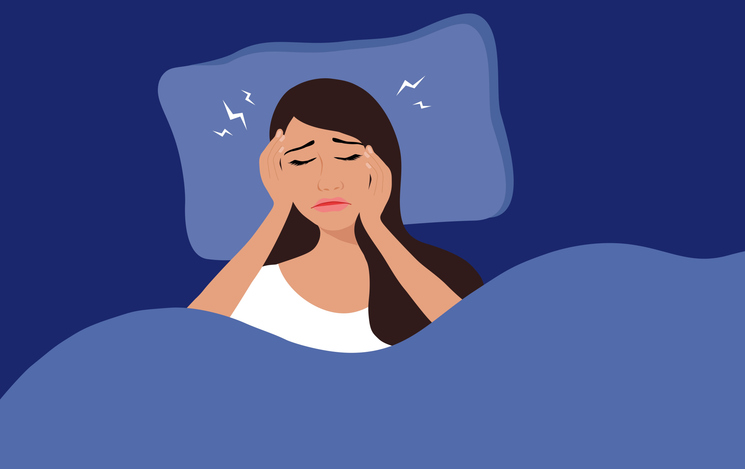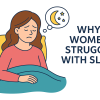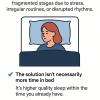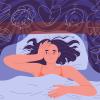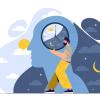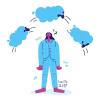How ADHD & Dyslexia Affect Sleep
🧠 Sleep Isn’t Optional: How ADHD & Dyslexia Affect Sleep—and How CBT-I Can Help
If you have ADHD or dyslexia and feel like sleep is harder for you than for everyone else—you’re not imagining things.
You're not lazy. You're not broken. But you may be exhausted. And there's a reason.
Neurodivergent people—including people who have ADHD and/or Dyslexia—often face unique challenges when it comes to sleep. Whether it's a racing mind at night, irregular sleep-wake rhythms, or trouble winding down, the impact can be huge.
But here's the good news: CBT-I (Cognitive Behavioral Therapy for Insomnia) offers a structured, customizable, and compassionate path to better sleep—and it works for neurodivergent brains too.
Leran more about ADHD from the NIH. 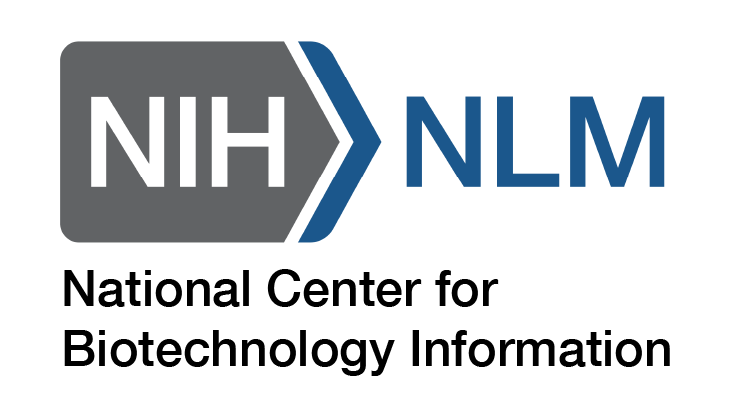
😴 How ADHD & Dyslexia Can Disrupt Sleep
🧠 ADHD: A Brain That’s “Always On”
People with ADHD often experience:
- Delayed Sleep Phase: Feeling fully awake at 11 p.m. or later
- Difficulty Winding Down: Racing thoughts, hyperfocus, or impulsive screen use
- Inconsistent Routines: Struggles with structure, logging, or staying on a fixed bedtime
- Nighttime Anxiety: Feeling guilty about not sleeping, which only worsens the problem
All of this makes it harder to fall asleep—and stay asleep.
📚 Dyslexia: Language Challenges That Extend to Sleep
While dyslexia is often discussed in the context of reading and writing, it can also affect:
- Processing nighttime routines (especially when instructions are text-heavy)
- Emotional stress from a lifetime of struggle, which can increase nighttime rumination
- Hypervigilance or anxiety that keeps the brain in “alert” mode
The result? Fragmented sleep, early waking, and deep fatigue.
💥 Why Poor Sleep Hits Neurodivergent People Harder
When you're already managing executive function challenges, lack of sleep makes it worse.
- It’s harder to regulate emotion
- Attention and focus drop dramatically
- Memory recall and processing speed suffer
- It becomes even tougher to follow through on the routines meant to help
Sleep problems don’t just make you tired—they amplify the struggles you’re already carrying.
💡 How CBT-I Can Help (Even If Your Brain Is Wired Differently)
CBT-I is the most effective non-drug treatment for chronic insomnia, and it's backed by decades of clinical research.
But here’s what matters: it can work beautifully for neurodivergent people—when it’s flexible and personalized.
Here’s how MySleepPlan adapts CBT-I for ADHD and dyslexia:
🛠️ ADHD-Sensitive Features
- Flexible structure so you don’t feel punished for inconsistency
- Custom sleep routines built around your real life and attention flow
- Nonjudgmental tracking tools—no pressure for perfection
- Cognitive shuffle, AI check-ins, and mini-reset tools to help with racing thoughts or forgetfulness
🧩 Dyslexia-Inclusive Tools
- Audio lessons + visual icons to reduce cognitive load
- Short, clear tasks broken into easy steps
- Downloadable routines you can customize with your own language
- Sleep environment visuals to guide you without reading walls of text
✅ Real Tools for Real-Life Sleep Challenges
CBT-I doesn’t ask you to “just try harder.” It gives you tools to:
- Build consistency your way
- Understand your natural rhythm and how to work with it
- Quiet your thoughts and calm your nervous system
- Take back control of your nights without medication
💬 What Neurodivergent Sleepers Say
“I used to lie in bed for hours, brain buzzing. Now I know how to slow it down without fighting it.”
— Jamie, ADHD
“The app speaks in my language. No shame. Just real tools I can actually follow.”
— Lara, Dyslexic adult
“It finally clicked. Sleep is something I can train into, not something I’m bad at.”
— Zack, ADHD + Dyslexia
💤 Sleep Is a Right—Not a Reward
You’re not failing at sleep because of your wiring. Your wiring just needs a different map—and CBT-I can be that map.
At MySleepPlan, we’re here to help you get the sleep you deserve with guidance that works for you, not against you.
👉 Explore Sleep Strategies for Neurodivergent Adults
You’re not alone. You’re not broken. And you can absolutely get better sleep.


